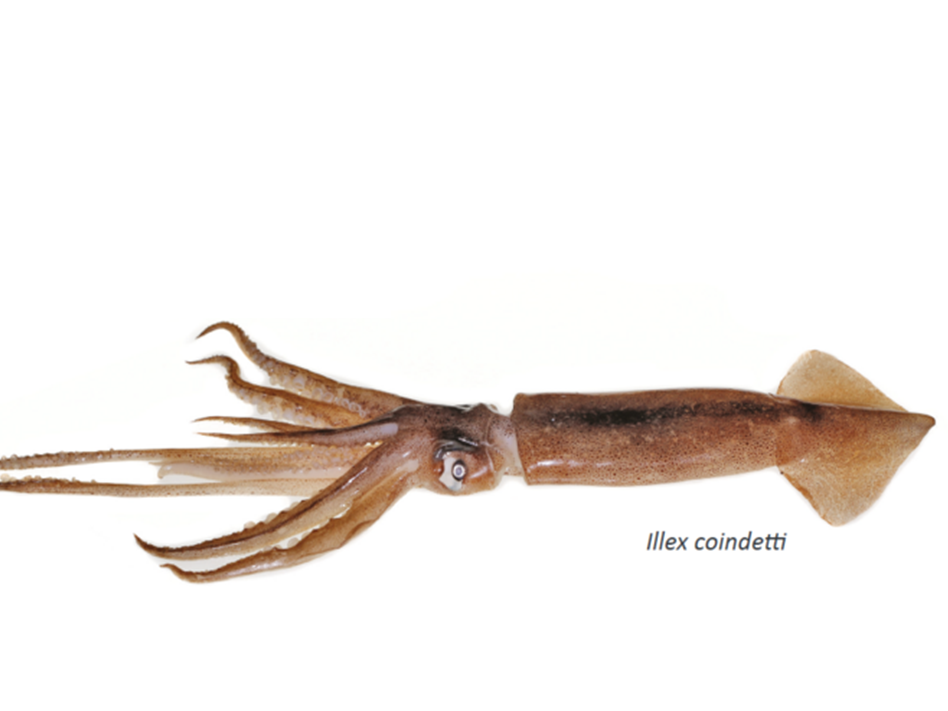Climate change is influencing the distribution of some animal species—such as squid. These creatures seem to benefit from climatic changes as they colonize new areas in the North Sea and reproduce successfully there. This makes them increasingly relevant for fisheries. As part of a future sustainable management plan, we are investigating what squid species eat and how they fit into the food web of this new ecosystem. Squid diet can be categorized based on their fatty acid patterns. In a pioneering study by the three Thünen Institutes of Fisheries Ecology, Sea Fisheries, and Baltic Sea Fisheries, we analyzed the fatty acid profiles of various squid species from the northern North Sea. We found that the fatty acid composition varies significantly between species, suggesting different feeding behaviors among the squid inhabiting the same area. This challenges the prevailing notion that squid are indiscriminate hunters. We are currently exploring this hypothesis in further studies.
Thünen experts:

![[Translate to English:] [Translate to English:]](/media/_processed_/2/9/csm_Embryo-Exp_Gelege_9F_dpf5-200513111619_c8534a8199.jpg)
![[Translate to English:] [Translate to English:]](/media/_processed_/2/9/csm_Embryo-Exp_Gelege_9F_dpf5-200513111619_9027994d44.jpg)





